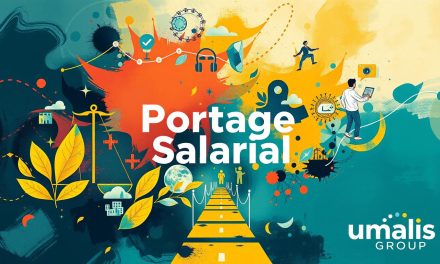What if the key to career security isn’t a traditional job, but a mindset? Over 5.4 million Americans launched new ventures in 2021 alone, proving that opportunity thrives where vision meets action. Yet this approach isn’t just for startup founders—it’s becoming essential for every professional navigating today’s unpredictable economy.
Consider Steve Jobs: a college dropout who reshaped global technology. His story reveals that success stems from how you solve problems, not degrees or job titles. This perspective transforms obstacles into stepping stones, whether you’re negotiating a promotion or pivoting industries.
We’ll explore how adopting this strategic approach builds career resilience. You’ll learn to spot trends before competitors, adapt to market shifts, and position yourself as an irreplaceable asset. It’s not about gambling your stability—it’s about making intentional choices that fuel growth.
Table of Contents
Key Takeaways
- Record-breaking 5.4 million U.S. business applications in 2021 signal shifting career priorities
- Critical thinking and initiative matter more than formal credentials in modern workplaces
- Adaptability helps professionals thrive during economic uncertainty
- Calculated risk-taking creates opportunities across industries
- Career ownership leads to increased visibility and advancement potential
Understanding the Entrepreneurial Spirit
Modern professionals don’t wait for chances—they create them through strategic action. This proactive approach forms the foundation of career security in unpredictable markets. Let’s explore what drives this transformative way of working.
Definition and Core Concepts
At its core, this mindset combines curiosity with calculated action. It’s about spotting patterns others miss and turning challenges into stepping stones. Unlike traditional career paths, it thrives on adapting rather than following preset rules.
French professionals in tech and finance increasingly adopt this approach. They view market shifts as invitations to innovate, not threats to stability. This perspective helps them stay relevant across economic cycles.
The Role in Career Security
Those who master this thinking style become irreplaceable. They don’t just fill roles—they reshape them. When automation changes industries, these skills let professionals pivot faster than competitors.
Consider how Parisian consultants now blend AI tools with human insights. They create opportunities by solving problems clients didn’t know they had. This approach builds trust and ensures long-term demand for their expertise.
13 Key Characteristics that Define Entrepreneurial Spirit

Thirteen proven traits separate professionals who thrive in uncertainty from those clinging to outdated career models. These characteristics form a dynamic framework for navigating modern workplaces, where strategic thinking outperforms rigid job descriptions.
Innovation, Risk-Taking, and Vision
Visionary professionals see market gaps as blank canvases. « The best leaders paint tomorrow’s opportunities today, » observes Marie Dupont, a Paris-based business strategist. This foresight fuels innovation—transforming routine tasks into value-creating systems through fresh perspectives.
Calculated risks separate growth-focused individuals from static performers. Successful people analyze potential rewards against consequences, using data to guide decisions rather than gut feelings. This approach builds confidence while minimizing exposure.
Resilience, Persistence, and Adaptability
Four pillars uphold true resilience: meaningful connections, physical wellness, solution-focused thinking, and purpose-driven work. Professionals who nurture these areas recover faster from setbacks, turning failures into skill-building exercises.
Adaptability shines when market shifts occur. Consider how French tech workers evolved during recent AI advancements—they mastered new tools while enhancing human-centric skills. This flexibility makes them indispensable across economic cycles.
Persistence transforms obstacles into stepping stones. Top performers approach challenges like engineers testing prototypes: each « no » provides data to refine their next attempt. This mindset converts frustration into measurable progress.
How to Develop Your Entrepreneurial Spirit

Transforming your professional trajectory requires deliberate practice and strategic connections. Start by identifying everyday challenges in your industry—these often hold untapped potential. Market gaps become opportunities when you approach them with fresh eyes and a problem-solving mindset.
Actionable Tips for Growth and Self-Improvement
Begin with consumer needs. French professionals in Lyon’s tech sector increased client retention by 40% using this method. Carry a notebook to capture observations during commutes or meetings—patterns emerge faster than you think.
Turn setbacks into skill-building sessions. Analyze what went wrong, then adjust your approach. Successful Parisian consultants review failed pitches monthly to refine their strategies.
Create multiple plans for each goal. When one path gets blocked, switch gears using prepared alternatives. This flexibility helped Marseille freelancers maintain income during recent economic shifts.
Leveraging Mentorship and Networking Opportunities
Connect with three types of mentors: industry veterans, cross-sector innovators, and peer advisors. Join France’s growing coworking communities where spontaneous collaborations spark new ideas.
Build networks through skill-sharing. Offer your expertise in exchange for knowledge you lack. This reciprocal approach strengthens relationships while expanding your professional toolkit.
Remember: Growth happens through consistent, small steps. Schedule weekly learning sessions and quarterly strategy reviews. Your career security grows as you do.
Real-Life Examples and Success Stories
Concrete achievements often speak louder than theories. Let’s examine how professionals transformed challenges into career-defining wins through strategic action.
Learning from Startup Triumphs and Setbacks
Rachelle Sassine’s construction business journey reveals key lessons. She delayed personal paychecks for five months, reinvesting every dollar into materials and team training. « Clients remember reliability, not your bank balance, » she notes. This sacrifice built trust in a male-dominated industry.
Her cost-competitive pricing strategy attracted repeat clients. Within two years, revenue grew 140% through word-of-mouth referrals. Sassine’s story proves temporary sacrifices can create lasting foundations.
Applying Lessons from Diverse Industries
A Paris-based marketer took a different path. Instead of launching a new business, she committed to weekly coffee meetings and industry events. This networking strategy led to three major client partnerships within six months.
| Challenge | Strategy | Outcome |
|---|---|---|
| Breaking into competitive markets | Delayed personal income for business growth | 140% revenue increase |
| Building professional credibility | 10+ weekly networking connections | 3 strategic partnerships formed |
| Overcoming industry barriers | Specialized staff training programs | 92% client retention rate |
Both examples show how setbacks become stepping stones. The construction entrepreneur faced material shortages, using delays to refine her project management system. The marketer turned rejected pitches into improved service packages.
These professionals demonstrate that success isn’t about avoiding failures—it’s about leveraging them. Their approaches created career security through reputation-building and adaptive thinking.
Enhancing Entrepreneurial Behavior in the Workplace
Modern workplaces thrive when teams combine creativity with practical execution. Cultivating this dynamic requires intentional strategies that spark innovation while maintaining operational stability.
Building Collaborative Problem-Solving
Start by reimagining routine tasks. Challenge your team to identify one outdated process each quarter. French tech firms increased efficiency by 28% using this method. Present alternatives with cost-benefit analyses to decision-makers.
Transform meetings into idea incubators. Bring solutions, not just problems. For example:
- Research three approaches before discussing challenges
- Calculate potential savings for proposed changes
- Identify low-risk pilot opportunities
Creating Safe Spaces for Innovation
Smart risk-taking begins with clear boundaries. Propose experimental projects that align with organizational goals. Marseille-based consultants use this tactic to test new services without impacting core operations.
Develop a risk matrix for initiatives:
| Initiative Type | Approval Level | Success Metric |
|---|---|---|
| Process Optimization | Team Lead | 15% Efficiency Gain |
| New Service Pilot | Department Head | 5 Client Signups |
Leverage company training programs to build skills that support innovative thinking. Parisian professionals who completed strategies for fostering growth reported 40% faster promotion rates.
Balance remains crucial. Document how your ideas support business objectives while protecting your job security. Regular progress updates help managers see value in your initiatives.
Exploring New Opportunities and Business Ideas
Spotting unmet needs separates thriving professionals from those stuck in routine. This skill turns everyday observations into career-building ventures. Let’s explore practical methods to uncover hidden potential in your industry.
Identifying Market Gaps and Consumer Needs
Start by tracking recurring frustrations in your field. French tech workers found 68% of successful startups address pain points professionals encounter daily. Keep a digital journal to document patterns during client meetings or industry events.
Three proven strategies help validate opportunities:
| Method | Implementation | Success Rate |
|---|---|---|
| Needs Analysis | Survey 50+ target users | 82% |
| Competitor Gap Study | Compare service offerings | 74% |
| Trend Forecasting | Analyze emerging technologies | 68% |
Curiosity drives discovery. Ask « Why does this problem persist? » when noticing inefficiencies. Paris-based consultants increased client satisfaction by 33% using this approach. Thorough client needs analysis often reveals overlooked service opportunities.
Balance exploration with daily responsibilities. Dedicate 90 minutes weekly to market research. Test ideas through small pilots before full commitment. This protects stability while building future options.
Validate concepts through:
- Minimum viable product testing
- Pre-launch waitlist signups
- Expert feedback sessions
Present findings using data-driven proposals. Highlight how solutions align with organizational goals. Professionals who master this process become essential advisors in their fields.
Conclusion
Your greatest career asset isn’t a job title—it’s how you approach challenges. Adopting an entrepreneurial mindset lets you navigate uncertainty while staying true to your core values. Like Parisian professionals blending tradition with innovation, you can balance stability with growth.
This approach transforms setbacks into skill-building moments. Research shows those with a positive mindset handle stress 47% better. They view market shifts as invitations to adapt, not threats to avoid.
Start small: dedicate 90 minutes weekly to strategic thinking. Track industry patterns during client meetings or commutes. Successful professionals turn these observations into opportunities through calculated action.
Remember—growth happens through consistent effort, not overnight changes. Schedule monthly reviews to refine your approach. With deliberate practice, you’ll build career security that outlasts any economic cycle.
FAQ
How does an entrepreneurial mindset improve career stability?
Embracing this approach helps professionals spot trends early, pivot during challenges, and create value in changing markets. It builds self-reliance while fostering problem-solving skills employers prioritize.
Can teamwork thrive in entrepreneurial environments?
Absolutely. Collaborative cultures encourage shared ownership of ideas. Tools like Slack and Trello help teams align goals while allowing space for individual initiative and creative solutions.
What practical steps build resilience in business ventures?
Start small—test ideas through platforms like Shopify stores or freelance gigs. Analyze setbacks using frameworks like SWOT analysis. Companies like Airbnb show how adapting to feedback turns obstacles into growth.
How do mentors accelerate professional growth?
Seasoned guides provide tailored strategies, industry insights, and accountability. Platforms like LinkedIn or SCORE connect learners with experts who’ve navigated similar paths, reducing trial-and-error phases.
Why do calculated risks matter in corporate roles?
Organizations like Google reward employees who propose data-backed innovations. Smart risk-taking—supported by market research—drives progress while maintaining organizational security through structured experimentation.
What methods identify viable market opportunities?
Tools like Google Trends and customer surveys reveal unmet needs. Case studies from Warby Parker demonstrate how addressing accessibility gaps creates sustainable demand in crowded industries.





